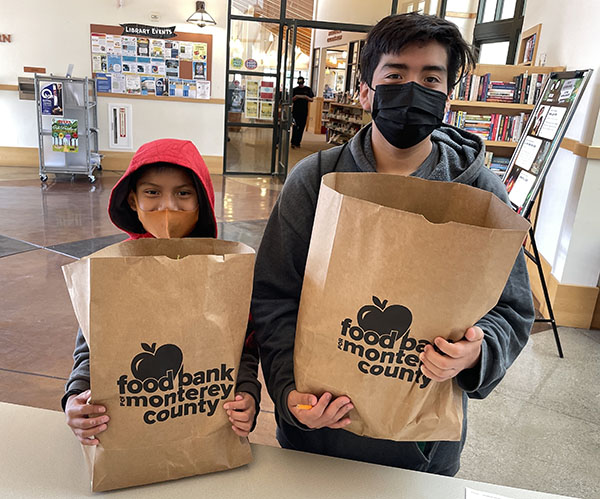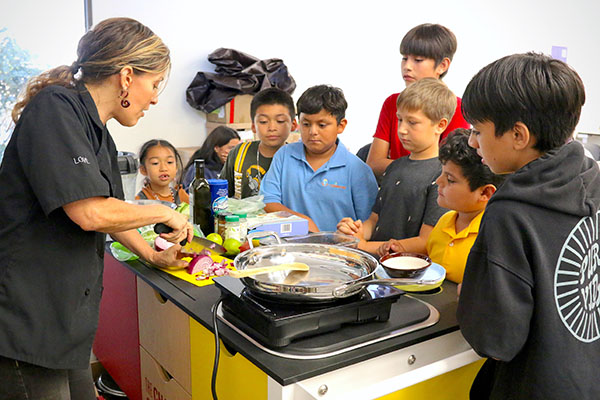Further Your Impact

Food for Families
USDA provides funding for free meals specifically for those 18 and younger (with some exceptions) yet often adults who attend the program with their children are also food insecure.
While state grant funds should not be used specifically for the items below, much can happen in partnership with local funding streams (such as a Friends of the Library group). Ideas include:
- Purchasing meals from your meals site provider specifically for caregivers.
- Providing snacks (granola bars, string cheese, fruit cups) for participants of any age.
- Partnering with your local food bank or food pantry to distribute weekly/monthly produce bags.
Partnership Ideas
Lunch at the Library provides opportunities for libraries to strengthen existing community partnerships and build new ones. It strengthens collaboration within cities, counties, and special districts, building stronger communities and providing improved support for families.
Partners can help libraries introduce and connect families to other community resources, present programming, provide food for parents and caregivers, connect library staff with volunteers, provide funding, and more. Partnerships also provide a great opportunity to engage community leaders and highlight the library’s role as a community hub.
Some examples of partnering agencies include:

- Adult schools
- Businesses and corporations — local, state, and national
- Community centers (Boys & Girls Clubs, Parks & Rec)
- Community colleges, universities
- Community gardens
- Faith-based organizations
- Farmers and Farmers’ Markets (see Farm to Summer for more)
- Food banks
- Health Clinics, hospitals
- Parks and Recreation — local, state, and national
- Rotaries and service organizations
- Social services agencies
- Sports teams (major, minor, college, and youth)
- Transit Authorities
- Youth Commissions
Outreach and Promotion
According to the most recent USDA Summer Meals Study “lack of awareness about the summer program located near their home is the most frequent reason both nonparticipant teens and nonparticipant caregivers give as to why they or their children do not participate in the summer meals program.”
This illustrates why promoting your Lunch at the Library program is vital to overall success. Libraries can work with the community to raise awareness and reach marginalized groups. Potential community groups could include information service listings such as 2-1-1, social services agencies and other groups working with youth.
When thinking of ways to promote your Summer Meals, think of ways that the local community lives and gathers. Some libraries have had success running ads on local radio stations or in movie theaters while others have conducted targeted mailings or social media advertisements to area zip-codes.
For more on promotions review the Toolkit page.

Volunteer Planning
Volunteers are a key component of a successful Lunch at the Library program. As you begin to prepare for the summer think about how many volunteers each site will need and how many hours they will be working. Consider the staff time needed for recruitment, screening, training, regular onboarding activities, as well as the general supervision of volunteers.
Using teens as volunteers or interns provides a great opportunity to help area youth build workforce readiness skills. For information on working with teens as a part of your Lunch at the Library please visit the Youth Development section on the About page.
See the Get Involved website for additional resources on volunteer management.
